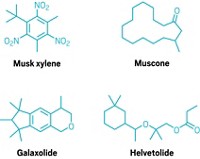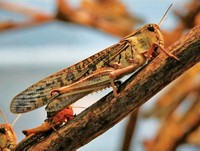Advertisement
Grab your lab coat. Let's get started
Welcome!
Welcome!
Create an account below to get 6 C&EN articles per month, receive newsletters and more - all free.
It seems this is your first time logging in online. Please enter the following information to continue.
As an ACS member you automatically get access to this site. All we need is few more details to create your reading experience.
Not you? Sign in with a different account.
Not you? Sign in with a different account.
ERROR 1
ERROR 1
ERROR 2
ERROR 2
ERROR 2
ERROR 2
ERROR 2
Password and Confirm password must match.
If you have an ACS member number, please enter it here so we can link this account to your membership. (optional)
ERROR 2
ACS values your privacy. By submitting your information, you are gaining access to C&EN and subscribing to our weekly newsletter. We use the information you provide to make your reading experience better, and we will never sell your data to third party members.
Biological Chemistry
Plants Inspire Insecticide Candidates
Terpenes extracted from two plants interfere with mosquito ovary development
by Sarah Everts
February 2, 2015
| A version of this story appeared in
Volume 93, Issue 5
Insects do billions of dollars’ worth of damage to agricultural products annually, and they can also be the vectors of numerous diseases. A team of researchers led by Yeon Ho Je and Sang Woon Shin of Seoul National University, in South Korea, and Alexander S. Raikhel of the University of California, Riverside, have found five new insecticide candidates by examining the terpenes produced defensively by two plants: Lindera erythrocarpa, a common Asian shrub, and Solidago serotina, a pervasive North American perennial (Proc. Natl. Acad. Sci. USA 2015, DOI: 10.1073/pnas.1424386112). Researchers developing insecticides avoid compounds that might hurt the environment or human health by focusing instead on disrupting insect-specific proteins. This team focused on the juvenile hormone (JH) receptor in mosquitoes. Agonists acting on this receptor already form the basis of several insecticides, but antagonists, which could prove more effective, have not yet been found. The team showed that two of the terpenes, including LE3B, are JH antagonists and can retard the maturation of mosquito larva ovaries.





Join the conversation
Contact the reporter
Submit a Letter to the Editor for publication
Engage with us on Twitter